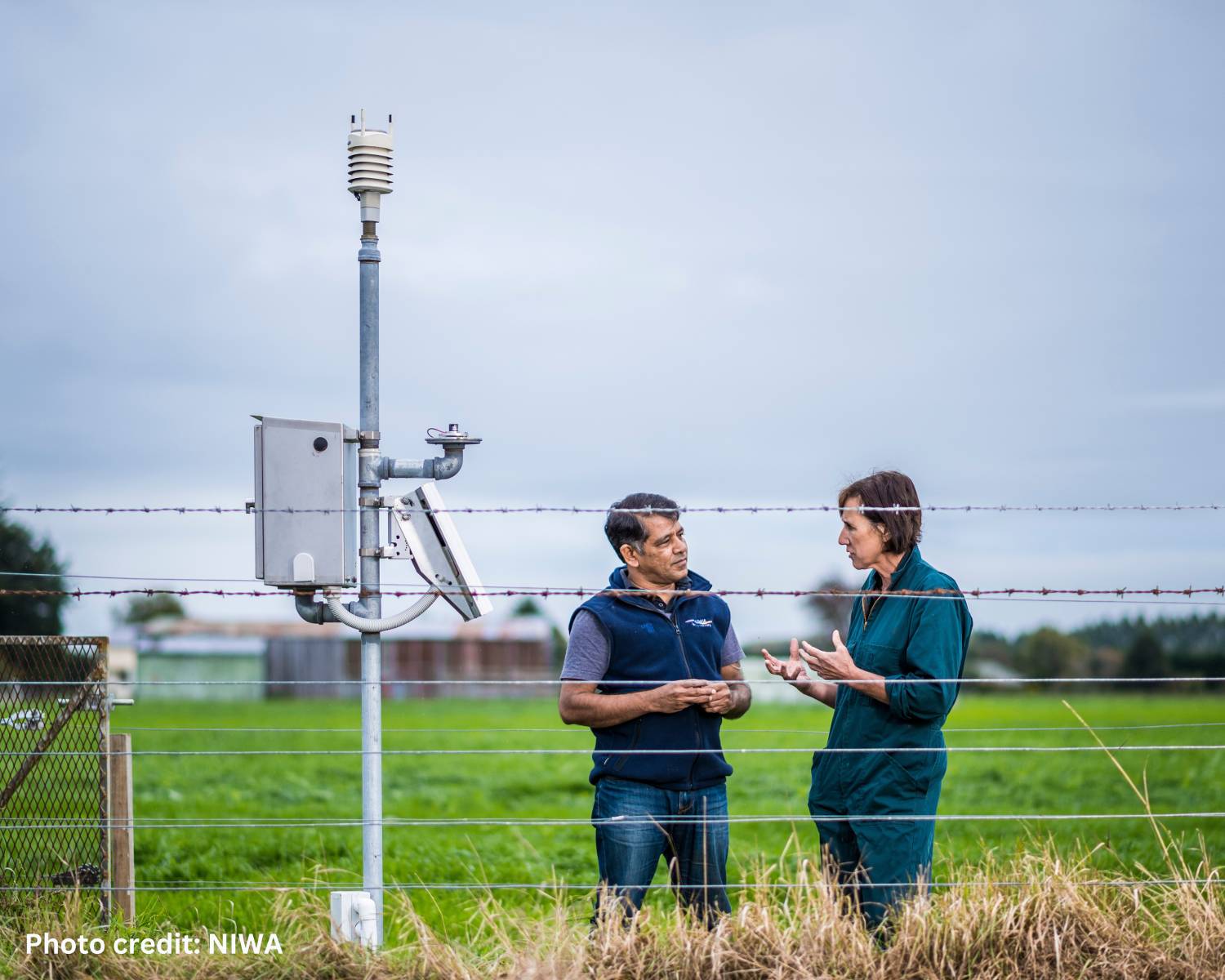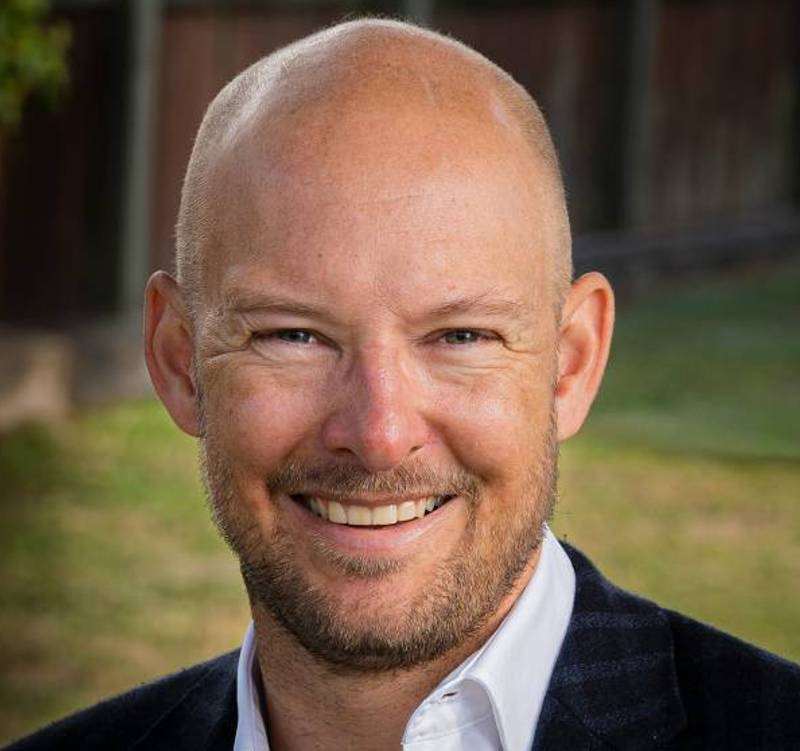
13 Mar New tool helps dairy farmers tackle climate change by making more informed irrigation investments
NIWA and Perrin Ag have joined forces to create a new tool that gives New Zealand dairy farmers real-world projections for making strategic decisions about irrigation as they tackle the effects of climate change.
IrriSET is an irrigation strategy evaluation tool to help future-proof irrigation decisions. The tool helps farmers understand the economic viability and environmental efficiency of various irrigation strategies and prioritise irrigation investments.
NIWA led the development of IrriSET and created the water balance model which assesses water supply, use and loss. They provided the climate expertise and supported the estimates of pasture production based on weather conditions and soil moisture. Perrin Ag’s role was to ensure that the tool can answer the economic questions: how much will this new system cost to operate, and how much pasture will I grow?
Crunching the numbers
A key person in the development of IrriSET is Perrin Ag principal consultant and agricultural economist Carla Muller. Carla led the economic modelling that enables IrriSET to calculate the relative cost of, and pasture production from, various irrigation systems. Although the modelling is complex and layered, she has a simple way of explaining the objectives.
“When it comes to irrigation, farmers want to know: What will it cost me to irrigate with this system or that system? And how much feed will I grow as a result? Increasingly they also want to know what the environmental implications are of this system,” she says.
“They want to know if their system is fit for purpose and whether it will provide the environmental and economic outcomes for their business now and into the future. How could climate change impact these outcomes? What do they need to do to prepare their system for potential climate change implications?
“They need to consider if their irrigation is, or will be, restricted because of irrigation infrastructure, such as irrigator type. Will they have enough irrigation supply to meet demand under potential climate change scenarios? IrriSET can help them answer all these questions.”
The cost of growing grass
To translate water inputs into pasture gains, the economic modelling uses existing science that maps the relationship between soil moisture levels and grass growth, Carla explains.
“The user defines a base pasture growth value (for January), and the model then estimates how pasture responds to soil moisture levels, whatever the source, alongside light and temperature” she says. “It accounts for the soil being too dry, too wet and pugging damage. IrriSET also allows the user to test the relative operational costs, things like labour, repairs and maintenance, the cost of water and electricity.”
A piece of the puzzle
IrriSET’s results are an important piece of the irrigation puzzle. However, it was never designed to be used in isolation. Other aspects of the farm system need to be included in the decision-making process.
For example, can the extra grass be utilised to boost production? Or could an alternative farm system also grow additional grass? Carla and fellow Perrin Ag principal consultant Peter Keeling encountered this very scenario during trials.
“Peter and I ran IrriSET through its paces on a farm in the King Country,” says Carla. “We looked at where the farm could get water from, and what this farm would look like if it incorporated some irrigation. IrriSET accounted for the costs of irrigation and modelled the extra grass growth, which then led to the question, ‘What could be done with that extra grass?’
“In the King Country case, we looked at the entire farm system under expected climate change and concluded the farm could achieve a similar economic outcome through strategic changes to the farm system as they could to irrigating a small proportion of their farm and growing additional pasture. This raised further questions around what else the water could be used for, especially with expected climate change.
“That’s the whole point of IrriSET; to give farmers information on options so they can make the right decisions about irrigation for their farm business and the environment now and for the future.”
A moving target
Climate change complicates the assessment of irrigation options: a water system that works today also needs to account for the shifts in weather patterns that are predicted.
IrriSET incorporates climate change predictions from 2021 to 2050 and 2051 to 2090 based on the United Nations Intergovernmental Panel on Climate Change (IPCC5) climate predictions. Farmers who are making decisions on irrigation systems now should be able to consider how that system will perform into the future.
IrriSET is designed to provide farm specific information. It takes account of daily climate data from the nearest NIWA’s virtual climate stations (5km or less) and assess the potential for irrigation under current and climate change conditions.
Once a user chooses their farm location from a map, IrriSET automatically populates soil and climate data for the farm location. Users can choose the nearest surface water sources that supports irrigation. IrriSET includes information from more than 1,000 flow recording sites across the country, which allows a user to select the nearest abstraction consent sites.
“IrriSET can be used both in irrigation and non-irrigation modes simultaneously to compare and contrast the economic and environmental outcomes”, say Dr MS Srinivasan, the project leader for IrriSET. “The easy-to-read visuals of IrriSET help farmers understand the implications of their irrigation investments not only now, but also in the future under a changing climate.”
Ongoing support for farmers
To make large strategic irrigation decisions such as a new system, a wide range of variables must be taken into account. The good news for farmers is that they won’t be alone in the process.
The IrriSET tool is freely available to use, and farmers are encouraged to use it in conjunction with their trusted advisors. Rural advisors can help farmers interpret the IrriSET data as well as factoring in other farm systems components. Bank managers and irrigation specialists can help assess the capital cost components and environmental specialists can ensure any compliance requirements are met. Perrin Ag and NIWA are also available to assist farmers and professionals in using IrriSET.
The development of IrriSET was funded by the MBIE Endeavour Programme Justified Irrigation (called Irrigation Insight) and MPI’s SLMACC project Future Proofing Irrigation Under Climate Change.
For further information on IrriSET please email: [email protected]


